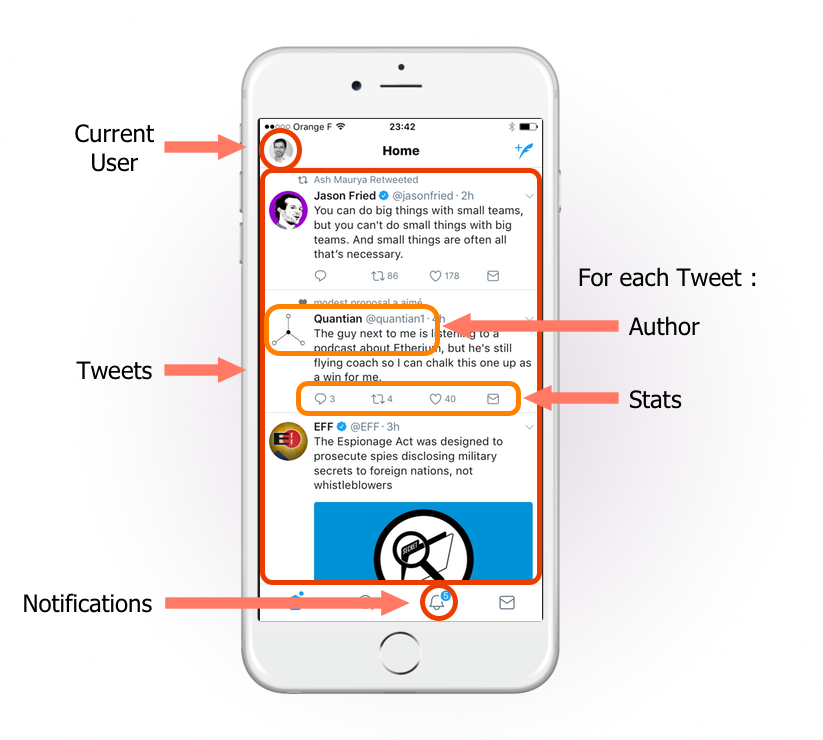MessagePack for D MessagePack is a binary-based JSON-like serialization library. MessagePack for D is a pure D implementation of MessagePack.
Features • Small size and High performance • Zero copy serialization / deserialization • Streaming deserializer for non-contiguous IO situation • Supports D features (Ranges, Tuples, real type) Note: The real type is only supported in D. Don't use the real type when communicating with other programming languages. Note that Unpacker will raise an exception if a loss of precision occurs. Current Limitations • No circular references support • If you want to use the LDC compiler, you need at least version 0.15.2 beta2 Install Use dub to add it as a dependency. MessagePack for Python What's this is an efficient binary serialization format.


It lets you exchange data among multiple languages like JSON. But it's faster and smaller. This package provides CPython bindings for reading and writing MessagePack data. Very important notes for existing users PyPI package name TL;DR: When upgrading from msgpack-0.4 or earlier, don't do pip install -U msgpack-python. Do pip uninstall msgpack-python; pip install msgpack instead.
Package name on PyPI was changed to msgpack from 0.5. I upload transitional package (msgpack-python 0.5 which depending on msgpack) for smooth transition from msgpack-python to msgpack. Sadly, this doesn't work for upgrade install. After pip install -U msgpack-python, msgpack is removed and import msgpack fail. Deprecating encoding option encoding and unicode_errors options are deprecated. In case of packer, use UTF-8 always. Storing other than UTF-8 is not recommended.
Javascript tool to unserialize php serialized data, or to serialize data the way php. Class; var c=new Class(') //array var o=new Class('MongoId') //object o.
For backward compatibility, you can use use_bin_type=False and pack bytes object into msgpack raw type. In case of unpacker, there is new raw option. It is True by default for backward compatibility, but it is changed to False in near future.
You can use raw=False instead of encoding='utf-8'. Planned backward incompatible changes When msgpack 1.0, I planning these breaking changes: • packer and unpacker: Remove encoding and unicode_errors option.
• packer: Change default of use_bin_type option from False to True. • unpacker: Change default of raw option from True to False. • unpacker: Reduce all max_xxx_len options for typical usage. • unpacker: Remove write_bytes option from all methods. To avoid these breaking changes breaks your application, please: • Don't use deprecated options.
• Pass use_bin_type and raw options explicitly. • If your application handle large (>1MB) data, specify max_xxx_len options too. Install $ pip install msgpack PyPy msgpack provides a pure Python implementation. PyPy can use this. Windows When you can't use a binary distribution, you need to install Visual Studio or Windows SDK on Windows.
Without extension, using pure Python implementation on CPython runs slowly. For Python 2.7, is recommended solution. For Python 3.5, Community Edition or Express Edition can be used to build extension module. How to use One-shot pack & unpack Use packb for packing and unpackb for unpacking. Msgpack provides dumps and loads as an alias for compatibility with json and pickle.
Pack and dump packs to a file-like object. Unpack and load unpacks from a file-like object. >>> import msgpack >>> import array >>> def default( obj). If isinstance(obj, array.array) and obj.typecode == 'd '. Return msgpack.ExtType( 42, obj.tostring()). Raise TypeError( 'Unknown type:%r '% (obj,)). >>> def ext_hook( code, data).
If code == 42. A = array.array( 'd '). Return ExtType(code, data).
>>> data = array.array( 'd ', [ 1.2, 3.4]) >>> packed = msgpack.packb(data, default =default, use_bin_type = True) >>> unpacked = msgpack.unpackb(packed, ext_hook =ext_hook, raw = False) >>> data == unpacked True Advanced unpacking control As an alternative to iteration, Unpacker objects provide unpack, skip, read_array_header and read_map_header methods. The former two read an entire message from the stream, respectively de-serialising and returning the result, or ignoring it. The latter two methods return the number of elements in the upcoming container, so that each element in an array, or key-value pair in a map, can be unpacked or skipped individually. Each of these methods may optionally write the packed data it reads to a callback function.
Archived from on February 20, 2015. • ^ Ferkenhoff, Eric (July 19, 2006)... Retrieved July 17, 2015. The exonerated play characters. Retrieved July 16, 2008. • Wilgoren, Jodi (January 10, 2003)...